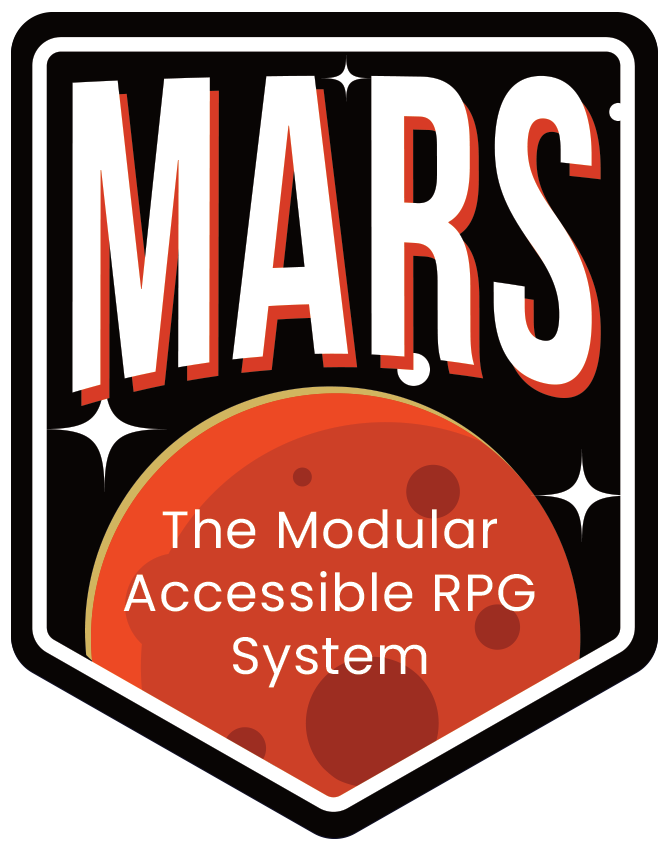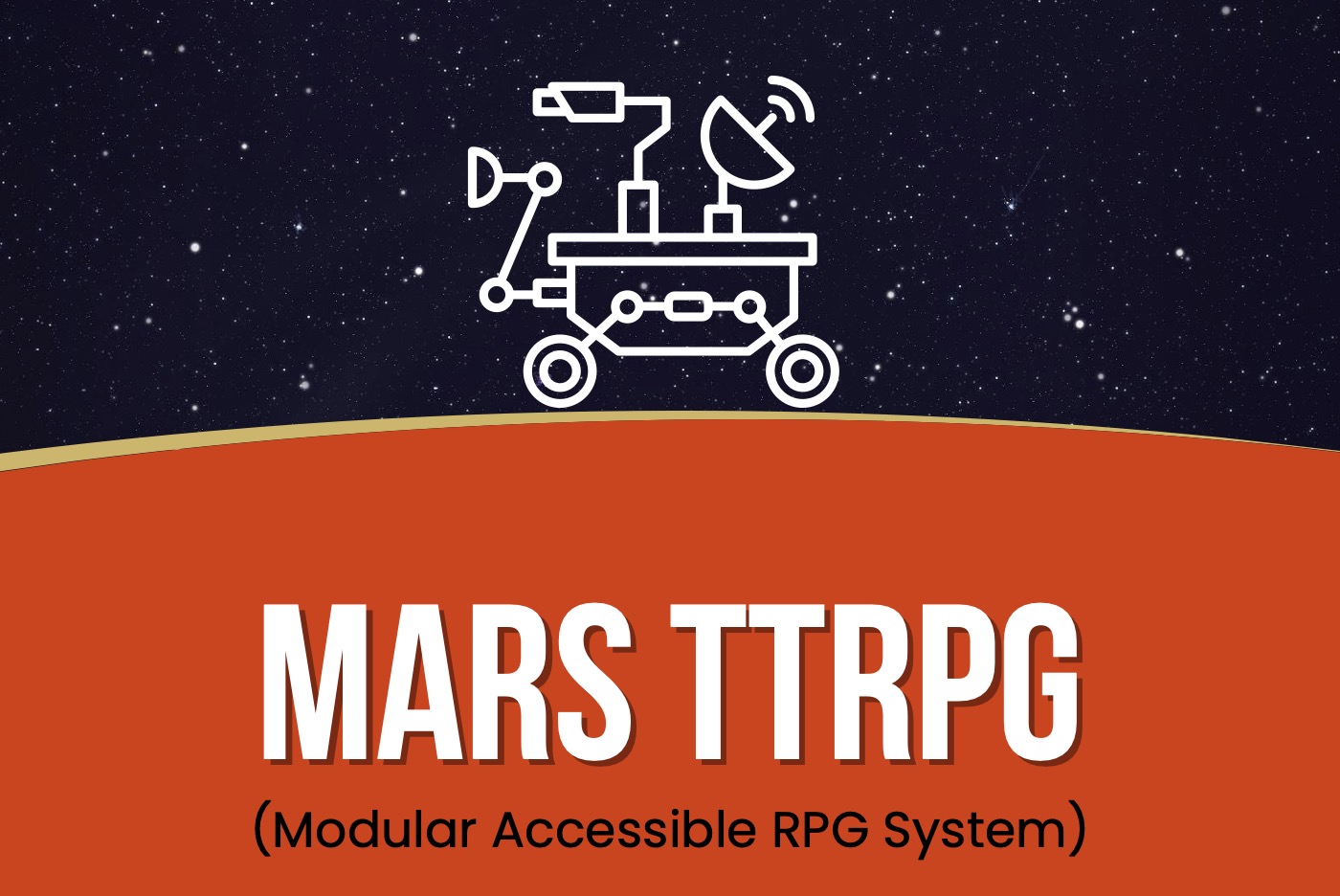We find these principles to be self-evident—well, not really, but at least they have served as a guiding light for the creation of the MARS System itself and can serve as a foundation for all MARS Creators, GMs and Players alike.
1. Keep It Simple Sasquatch
Let’s put the Accessibility in MARS, so that new players can be eased in.
The basic rules need to be easy to pick up, and mechanics, gear and props kept to a minimum. E.g. The only dice needed are d20s.
A quick game’s a good game, let’s not get bogged down in rules and over-cooking strategy (i.e. meta-gaming).
It’s a narrative-first (rules-second) approach. Consider also The Rule of Cool.
The focus of MARS is to scaffold telling a cool story together, and having fun!
2. Think Big, Start Small
Create systems that can be picked up and played with a minimum of rules. Then layer on additional rules over time as players come to understand the game better.
Rules should be specified in such a way that they can be introduced one or two at a time in the order they are written. Modules and Modes facilitate this at a high level, but the order of rules specified themselves is important.
3. Black Boxes can be fun!
The GM should strive to hide unnecessary detail/ mechanics from the players, at least to start.
This means if rules/mechanics can be setup to reduce player complexity, that’s ideal.
4. Incentivise Peak States
Collaboration, diversity and growth over time (aka continuous improvement) are at the heart of high performing teams.
Passionate, Open-hearted, compassionate and integrative leadership is the key to solving today and tomorrow’s challenges.
MARS provides opportunities to have an embodied experience of these states of being.
5. Maintain Player agency & fun
Stuns ain’t funs: No stuns against Players, at least not from NPC enemies (includes any ability that might take their Turn away from them completely).
Consequences are good, but death can be problematic. Decide with your group in Session 0 whether death is a mechanic you wish to run. Otherwise stick with the ‘Burnout’ mechanic only.
Sometimes Player agency and player fun can work against each other. For example, sometimes your Players will need a little nudge in the right direction to keep enjoyment high.
6. Setting Agnostic
The system should be designed to be utilised in any setting, from the Wild West to High Fantasy to Zombie Outbreak to Steamboat Mickey (Public Domain).
7. The Role of Rolls
Dice rolls allow for the simulation of actions that can’t fully take place at the table, either due to time constraints or physical space limitations.
This allows play and learning to focus on higher level flow and strategy rather than the depths of detail.
Wherever an action can be simulated (efficiently) at the table, that should be done instead of a roll. Or as well as a roll, and the performance/simulation can be rewarded by the GM with a bonus.
Rolls can also represent luck and other factors that are hard to control. They also allow for different situations to be explored (e.g. Both success and failure will come up due to randomness).
PS d20s are fun! The wild swings allow for all outcomes to be explored from exalted success to crippling failures. This is also a rich source of light-hearted humour.
8. Mashupable and extensible AF
The System should be designed to be extensible. Again this is where Modules, Modes and Settings come in.
Modules, Modes, Settings and even Narratives should be designed to be able to be stacked and mashed up. In some situations they may not be compatible with each other, but GM’s should have a fair chance at merging them. This means less is more in the definition of Modules, Modes and Settings.
In fact it is encouraged for Modes to reference and build on other Modes rather than redefining similar mechanics.
E.g. A space Setting could be mashed up with a pirate Setting. Or a Battle Mode could be mashed up with a giant mecha movement Mode.

